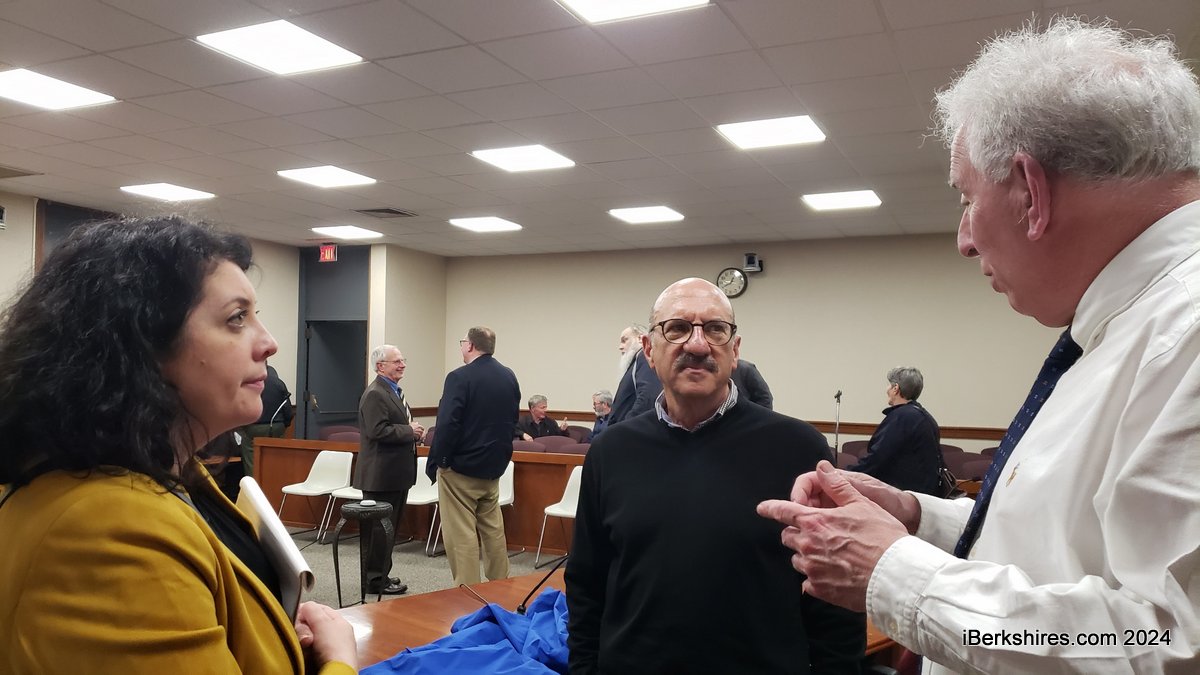Entrepreneurship Celebrated at Cloud85
 The 2015 Williams Business Plan Competition winner was UrTu, whose principal, Shannon Hsu, joined other Lever alumni at Friday's demo day. The 2015 Williams Business Plan Competition winner was UrTu, whose principal, Shannon Hsu, joined other Lever alumni at Friday's demo day. |
NORTH ADAMS, Mass. — Williams College graduates Jason Briggs and Emily Pavlini hope to find financial success by helping you find that old resume you have been looking for.
Or that tag sale flier you created five years ago. Or that recipe for shepherd's pie.
Briggs and Pavlini are co-founders of Meta, a software startup based in Boston but born at Cloud85, a non-profit "co-working space" operated by Lever, a non-profit focused on business development and entrepreneurship.
Briggs and Pavlini were back in the Steeple City last week to join other Lever entrepreneurs at the incubator's first startup demo day.
Briggs, a 2014 Williams graduate, explained that Meta allows users to instantly and easily search for documents across a variety of platforms and devices.
"With Meta, you never have to wonder where you saved a file or what you named it," he said.
It does this by employing a technique known as "smart tagging."
"Meta reads the document, determines its meaning and assigns it a tag," Briggs said. "It gives you all the benefits of tagging with none of the work.
"The average American has 2,000 files. Tagging them manually is not practical."
And with the proliferation of various cloud-based storage sites (Google Docs, Dropbox, etc.), not to mention your laptop, tablet and desktop computer, it takes time to run multiple searches — unless you have Meta.
Briggs and Pavlini's brainchild is just one of the consumer problem-solving technologies to spring from Lever.
Friday's demo day also included presentations from the creators of Mindburnr and Memoir.
Williams College computer science professor Brent Heeringa created Mindburnr to help users encode and retrieve data (like passwords or credit card numbers) with a tool that assigns images to the digits or letters.
The user can retrieve the data by selecting the correct images when presented with a screen filled with other randomly selected pictures.
"The system relies on years of human evolution," Heeringa said. "It relies on humans' ability to remember images.
 Williamstown native Kevin Ellingwood explains DR2, a tool for electric retailers. Williamstown native Kevin Ellingwood explains DR2, a tool for electric retailers. |
"We want to provide mnemonic tricks at the computer level and have you do what you're good at, which is recognizing images."
Memoir helps users keep their own images and other personal data secure on the Internet by hiding that information in plain sight as encrypted data hidden in photos through a technique called steganography.
Like Meta, Memoir had its origins in Williams College's Business Plan Competition, a project of Jeffrey Thomas, also the executive director of Lever.
The 2015 Williams Business Plan Competition winner was UrTu, whose principal, Shannon Hsu, joined other Lever alumni at Friday's demo day.
Hsu explained that her ecommerce company, developed in the Northern Berkshires, is moving to Mongolia this fall.
"Our mission is to make buying and selling in Mongolia and other developing countries hassle free," Hsu said.
She said Mongolians have adapted Facebook groups to use for ecommerce, but that solution is not working.
"They're actively looking for a solution," she said, and UrTu hopes to fill the void.
In all, seven startups were featured at Friday's event.
Williamstown native Kevin Ellingwood pitched his company, DR2, which serves the burgeoning independent electric retailer market by helping those retailers better engage their customers. Ben Cohen talked about SimpleSignup, a service that enables small businesses to create secure online portals for consumers to reserve and pay for services.
 Pownal's Ryan Maturski explains the thinking behind RynoFund. Pownal's Ryan Maturski explains the thinking behind RynoFund. |
Pownal, Vt.'s, Ryan Maturski explained the thinking behind RynoFund, which will allow race car drivers, athletes and artists to accept sponsorship money in return for mentions on the beneficiary's social media outlets.
Maturski, co-founder of automotive retailer RacingJunk.com (formerly part of the Boxcar Media family that includes iBerkshires), said that a magazine like NASCAR Illustrated might have a circulation of 87,000, but a single driver could have that same number of Twitter followers. RynoFund would allow major sponsors to buy "fast delivery to a large, segmented group," Maturski said.
And members of that group — the fans — can provide financial support to their favorite drivers in return for thank-yous on Facebook or Twitter.
"A racer has 70,000 followers because they want to see what [the drivers are] doing," Maturski said. "We're opening the door to let those followers contribute to the drive's success."
Tags: cloud85, digital economy, entrepreneurs, incubator, Internet,
 The 2015 Williams Business Plan Competition winner was UrTu, whose principal, Shannon Hsu, joined other Lever alumni at Friday's demo day.
The 2015 Williams Business Plan Competition winner was UrTu, whose principal, Shannon Hsu, joined other Lever alumni at Friday's demo day. Williamstown native Kevin Ellingwood explains DR2, a tool for electric retailers.
Williamstown native Kevin Ellingwood explains DR2, a tool for electric retailers. Pownal's Ryan Maturski explains the thinking behind RynoFund.
Pownal's Ryan Maturski explains the thinking behind RynoFund.















